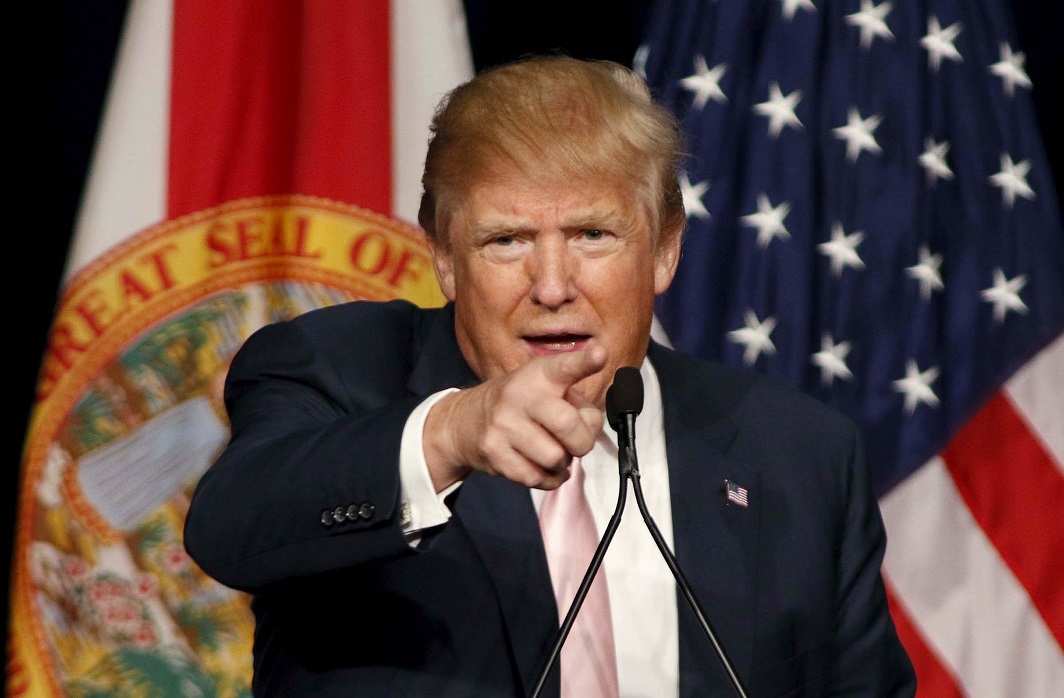[vc_row][vc_column][vc_column_text]India among countries to be wary of, says a private mailer sent to citizens
By APN Bureau
US embassies across the world have sent out heightened security warnings privately to their citizens who are travelling. American citizens have been warned to stay away from several countries—not just statutory areas such as North Korea and Afghanistan—and terror situations have been pointed out across the globe (including India) from where American citizens might be kidnapped.
While the advisory about India is regarding extremist activity, there is no elaboration.
While the language of the sudden advisory may be almost standard, it did talk about a “Worldwide Caution”, as well as “information on the continuing threat of terrorist actions, political violence, and criminal activity against US citizens.”
Its timing was also critical, coming just ahead of the deadline when US President Donald Trump was to announce his new executive order on travel ban.
APN accessed the mailer sent out by the US embassy in New Delhi and we reproduce some critical portions of the long e-mail.
Worldwide caution updated
The beginning was a giveaway of the seriousness with which the state department was treating this situation. It says: “As part of the Department of State’s continuous efforts to provide U.S. citizens traveling abroad with information about safety and security events, we are updating the Worldwide Caution with information on the continuing threat of terrorist actions, political violence, and criminal activity against US citizens and interests abroad. This replaces the Worldwide Caution dated September 9, 2016.
“As terrorist attacks, political upheaval, and violence often take place without any warning, U.S. citizens are strongly encouraged to maintain a high level of vigilance and take appropriate steps to increase their security awareness when traveling,” the mailer said.
To be in constant touch with its citizens placed and travelling abroad, the mailer insists: “Travelers are urged to enroll in the Smart Traveler Enrollment Program (STEP) to receive security messages and make it easier to locate you in an emergency. The Department uses these security messages to convey information about terrorist threats, security incidents, planned demonstrations, natural disasters, etc. In an emergency, please contact the nearest U.S. Embassy or Consulate or call the following numbers: 1-888-407-4747(toll-free in the United States and Canada) or 1-202-501-4444 from other countries.”
Except for the introduction all sounds pretty standard, though the number of countries mentioned as risky for an American traveller seems rather large. The general perception given in the mailer is that any other venue other than home may be dangerous. Travellers have been urged to “to monitor the local news and maintain contact with the nearest US embassy or consulate.”
As usual, terror outfits such as “ISIS, al-Qa’ida, their associates, and those inspired by such organizations,” have to be kept at arm’s length and there is a security concern placed for areas in a country visited. It says: “Terrorists are increasingly using less sophisticated methods of attack to more effectively target crowds, including the use of edged weapons, pistols, and vehicles as weapons. Extremists increasingly aim to assault “soft” targets, such as:
- high-profile public events (sporting contests, political rallies, demonstrations, holiday events, celebratory gatherings, etc.)
- hotels, clubs, and restaurants
- places of worship
- schools
- parks
- shopping malls and markets
- tourism infrastructure
- public transportation systems
- airports
“In multiple regions, terrorists, guerrilla groups, and criminals seek to kidnap U.S. citizens to finance their operations or for political purposes. In the wake of well-publicized attacks against commercial aircraft in Egypt by ISIS and Somalia by al-Shabaab, the Department remains concerned that terrorists could again seek to down aircraft using concealed explosives or hijack commercial flights.”
Warning for Americans too
Before it goes on to say which countries would be risky for the traveling American, it also warns its own citizens of associating themselves with any terror outfit. It says: “Private U.S. citizens should not travel to any country to participate in armed conflict. U.S. citizens are reminded that fighting on behalf of or providing other forms of support to designated terrorist organizations can constitute the provision of material support for terrorism, which is a serious crime that can result in penalties, including prison time and large fines.”
Then it goes into country specifics.
In the continent of Africa, the mailer talks about risks in Sub-Saharan Africa, with Somalia in particular. The continent in general has also been marked as outposts for terror organisations.
In East Asia and the Pacific region special emphasis has been put “in the coastal areas and outlying islands of the eastern part of the Malaysian state of Sabah, and the southern Philippines. Indonesia has witnessed an increase in terrorist-related arrests and foiled plots… Periodic acts of violence in Thailand remain a concern. U.S. citizens are urged to avoid all travel to North Korea/the Democratic People’s Republic of Korea (DPRK) due to the serious risk of arrest and long-term detention under North Korea’s system of law enforcement.”
For Europe the advisory remains standard in nature, informing that terror groups might want to hit at “major events, tourist sites, restaurants, commercial centers, places of worship, and the transportation sector…”.
For the Middle East and North Africa it says: “The U.S. government remains highly concerned about possible attacks against U.S. citizens, facilities, businesses, and perceived U.S. and Western interests in the region. Iraq, Syria, Yemen, and Libya are considered violent and unpredictable war zones, and there is no official U.S. diplomatic presence in the latter three countries. U.S. citizens should avoid these areas…”
About South and Central Asia, the mailer points out that hot areas would include Afghanistan and Pakistan, where US citizens may not be safe.
Then comes the further warning, which says: “Extremist elements are also active in India, as outlined in a recent emergency message.” There is no elaboration.
Bangladesh, of course, also remains on the watch-list.
Moving to the Western Hemisphere, it warns of Latin America, the Caribbean, and Canada. US citizens are particularly vulnerable to kidnap-for-ransom attempts and violent crimes of opportunity while visiting a variety of countries.[/vc_column_text][/vc_column][/vc_row]























